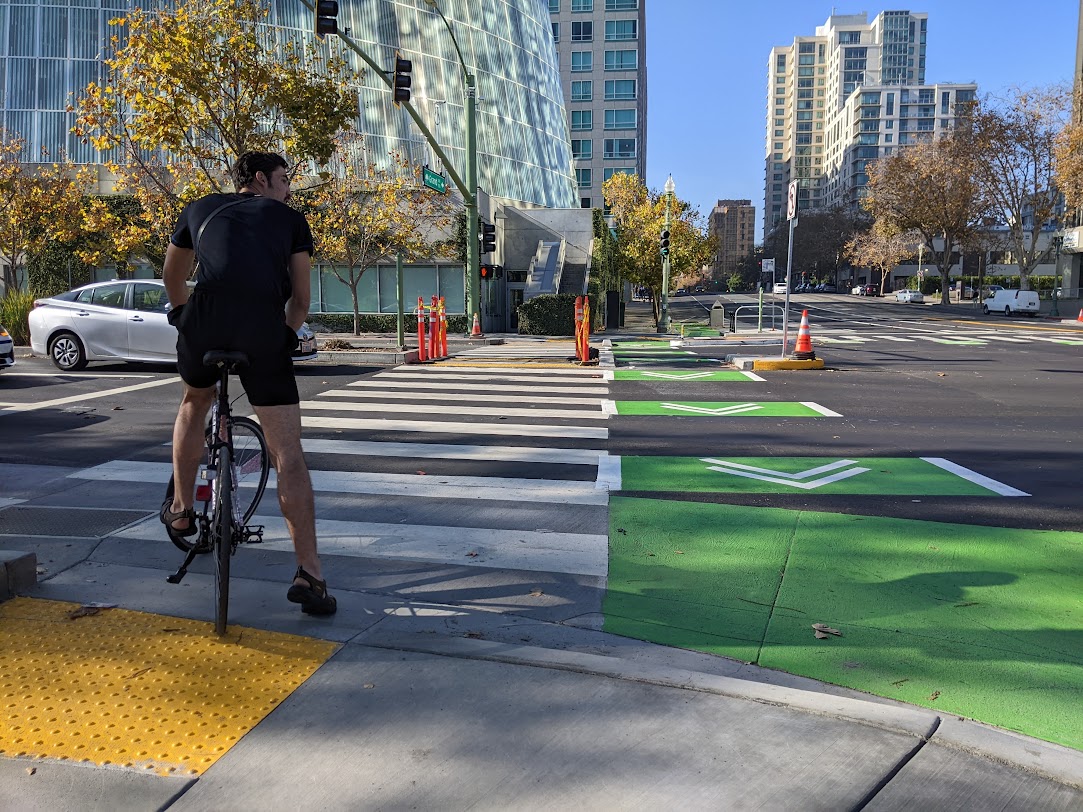Fort Myers, Florida, might seem like an unlikely place for a safe streets revolution, but it's exactly the type of place that needs it most.
This region of about 600,000 people, developed almost entirely during the apex of American car culture, has wide, dangerous streets typical of Florida.
In a lot of ways, Fort Myers has extra motivation to change. The region is heavily reliant on tourism, so its economy is premised on the area being a comfortable, attractive place to visit. It's also a retirement community, with many elderly residents who might be unable to drive. And finally, many of the region's residents -- working in the tourism industry -- make low incomes. The median household income in 2010 was just over $40,000, which car ownership will take a big bite out of.
And greater Fort Myers -- despite lacking many of the hallmarks of a progressive, pedestrian- and bike-friendly city -- has been making strides thanks to local bike and pedestrian advocates organized under the group BikeWalkLee (as in "Lee County").
Last week BikeWalkLee's efforts paid off with the announcement that the region had won a $10.5 million TIGER grant to help implement a region-wide complete streets plan. U.S. Transportation Secretary Anthony Foxx even visited to announce the grant last week, saying "Lee County, Florida, is on the brink of transformation."
BikeWalkLee's Darla Letourneau celebrated the good news on the organization's blog:
The grant request was targeted on constructing a series of improvements to a network of pathways, bike lanes, sidewalks, bus shelters and sidewalk connections, wayfinding signs, bike parking, and bicycle/pedestrian intersection improvements. These connections will close the gaps along the Tour de Parks route, the University Loop, and the Bi-County Connector, as envisioned in the MPO's bike/ped master plan. The result will be a connected corridor of biking and walking facilities linking downtown Fort Myers across Lee County south to FGCU and Bonita Springs, and ultimately to Collier County by transit.
Improving safety is a key goal of this project. Lee County's traffic safety record for bicyclists and pedestrians is one of the worst in the state. Twenty-two percent of recent roadway crashes involved injuries or fatalities to bicyclists or pedestrians--nearly double the national average.
"We are deeply grateful to USDOT and Secretary Foxx for demonstrating its support for Lee County's complete streets efforts through this TIGER grant," said BikeWalkLee's Darla Letourneau. "It puts us on a new path toward a livable, sustainable, and economically vibrant future. It could not have been possible without real public engagement, collaboration, and teamwork. "
If change can happen in Lee County, Florida, it can happen anywhere, as long as advocates are organized and persistent, and outlets like TIGER empower local communities to make forward-looking decisions.
Elsewhere on the Network today: Urban Milwaukee reports the city is on track to add 27 miles of bike lanes this year. And Streets.mn describes the elation of riding on a protected bike lane for the first time.






